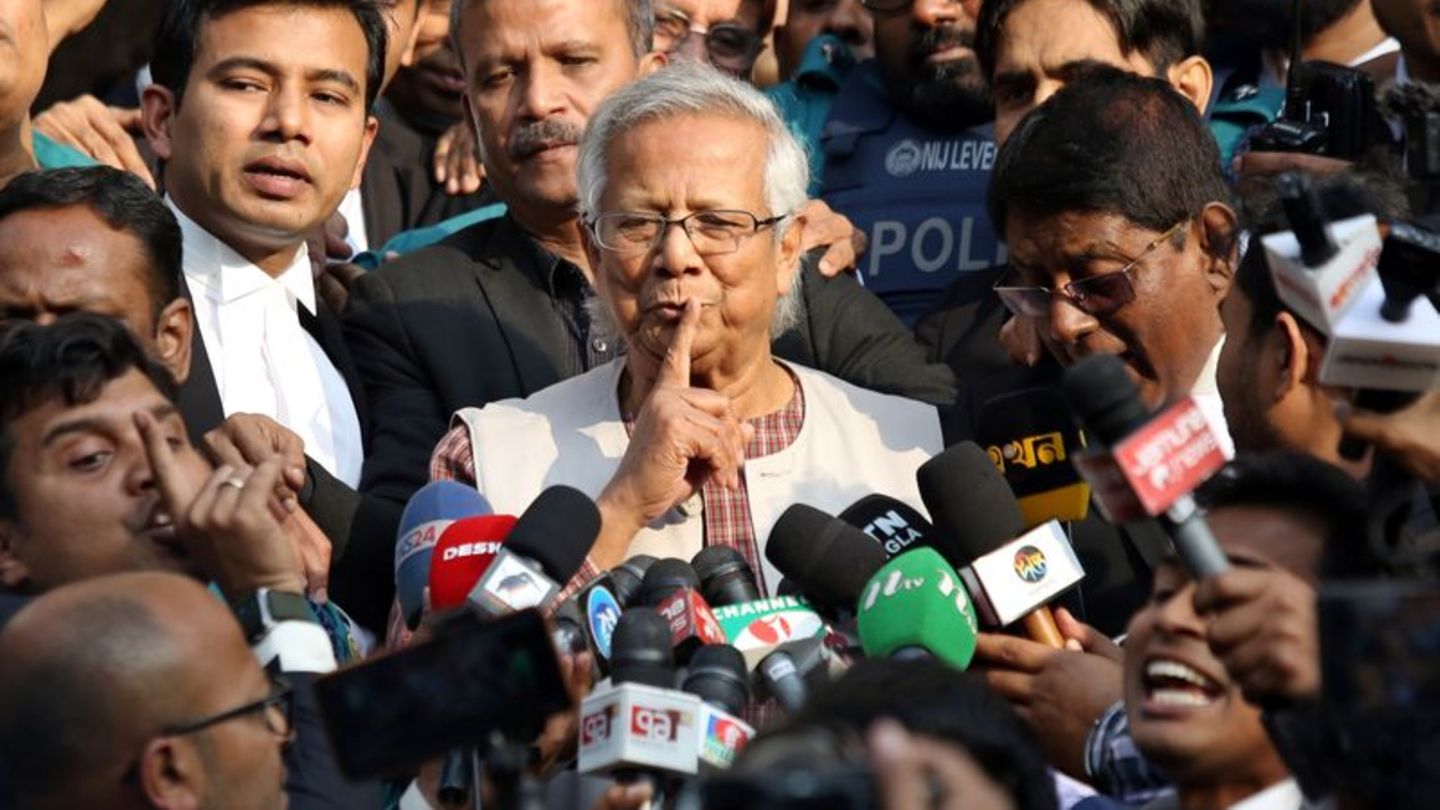After the mass demonstrations in Bangladesh, the father of microcredit is set to take over the helm: will the country now find peace after the bloody protests?
After the resignation of the authoritarian Prime Minister Sheikh Hasina, Nobel Peace Prize winner Muhammad Yunus is to lead a transitional government in Bangladesh. The inventor of microcredit will remain in office until new elections, the office of President Mohammed Shahabuddin confirmed to the German Press Agency. The 84-year-old is prepared to take over the official duties temporarily, a spokeswoman for Yunus told the radio station BBC Bangla.
The decision for Yunus was made at a meeting between the president and representatives of the protest movement and the military, it was said. According to observers, the armed forces had recently held de facto power in the South Asian country. One of the main organizers of the protests, Nahid Islam, said the demonstrators welcomed the fact that Yunus had been chosen.
Banker of the poor
Yunus is known as a banker of the poor. With his Grameen Bank, he gave small loans to poor people who would not have been able to get normal bank loans so that they could become self-employed. He believed that this would enable people to free themselves from their poverty. He found imitators all over the world: when Yunus received the Nobel Peace Prize together with the Grameen Bank in 2006, there were small lenders in more than 100 countries.
Yunus has already been politically active once: In 1996, he served as a minister in a transitional cabinet for two months. In 2007, he founded his own party, “Citizen Power.” After a dispute with Hasina, he was eventually removed as director of the Grameen Bank. The official reason: his age. However, Hasina also accused Yunus of “sucking the blood out of the poor” with his microcredit interest rates. There was also increasing criticism from abroad that microcredits were not the right tool to combat poverty.
Hasina brutally suppresses protests
Poverty also played an important role in the recent mass protests in the country with 170 million inhabitants. Despite an economic upturn under former Prime Minister Hasina, many people are struggling to make ends meet. Unemployment is also high. Due to the planned and now largely withdrawn reintroduction of a controversial quota system, many demonstrators feared that access to coveted jobs in the public sector was at risk.
Instead of addressing the concerns, Hasina tried to crack down on the protests with all her might. She ordered curfews, temporarily blocked the internet and deployed police and military. The protests then spread further and further and demonstrators demanded Hasina’s resignation. According to local media reports, more than 300 people were killed in the protests.
Chance for democracy?
Hasina has been head of government for the past 15 years without interruption. Human rights organizations accused her of targeting critics. Thousands were arrested during her time in office – including during the recent protests. The future head of government, Yunus, was sentenced to six months in prison by a court this year for allegedly violating labor law with the non-profit part of one of his companies. His supporters criticized the verdict as politically motivated. In the end, he did not have to serve his sentence.
“One reason for the broad support of the protest movement is the fact that the country has not seen elections with real competition for 15 years,” Bangladesh expert Thomas Kean from the non-governmental Crisis Group told the German Press Agency. The current crisis is an opportunity to lead the country back towards real democracy.
Source: Stern
I have been working in the news industry for over 6 years, first as a reporter and now as an editor. I have covered politics extensively, and my work has appeared in major newspapers and online news outlets around the world. In addition to my writing, I also contribute regularly to 24 Hours World.




